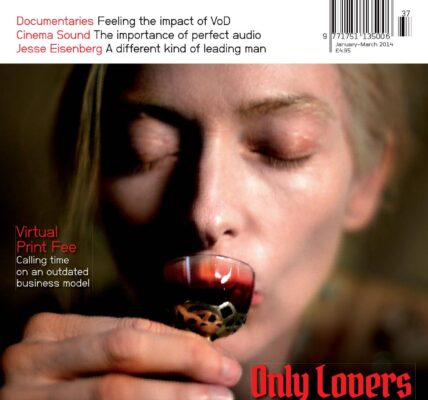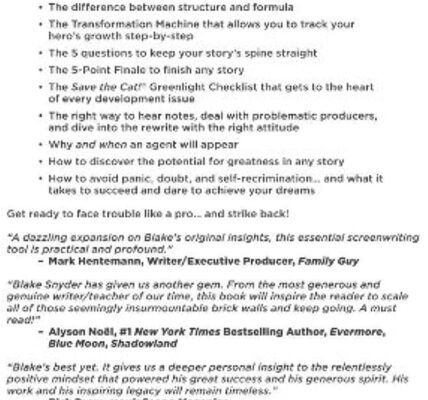Insider’s POV: Charlotte Rampling and Barnaby Southcombe – movieScope
You were directed by your son for the first time in this film. How did you find that experience?
Charlotte Rampling: That established itself quite quickly. I wasn’t sure the first time when it [the story] was just an adaptation. I didn’t respond to the character, I didn’t like the character I did not think it was me. I thought I was too old and that it should probably be a younger woman. The world she was in so violent, so desperate so raw; I didn’t think I could go there. When Barnaby did the proper screen adaptation that time it was very different, then it was a director asking an actress but it was the son asking his mother.
Because Barnaby is a very experienced television director, it became professional in the sense that we knew what we were doing but the good part was that we also knew each other very well.
The relationship between director and actor has to be often developed very fast, you may like the directors work say you’ll do the film but you don’t really have much time to get to know how to work with that person. The basis of our working relationship was one of trust.
What was the decisive factor in you deciding to take the part? Initially you weren’t convinced?
The screenplay was very good and the role was very different; it was very developed, all these different psychological layers that were built into the character that had not been there before. All the elements were together to make a very compelling story, from an actor’s point of view it was very rich.
You described Anna as a mystery ‘as much a mystery as I am to myself.’ Did you gradually find elements of her character that resonated with you?
Barnaby had given the character the potential for those things to emerge. The thing about choosing a part in a film, if the part can only remain one-dimensional, its much less interesting. I prefer to take roles where I am allowed to dig deep into the psychological depth of the character. There were all these possibilities in Anna because she was very complex. Those complexities live in us anyway, and it’s very interesting to bring them out through a character.
Anna’s character seemed to embody two characteristics. On the one hand she was a victim, she had suffered, but at them same time she was assertive and strong. Was that a difficult aspect to bring those two sides to her?
That again corresponds in a certain way to who I am as a person. Its femininity, we are very strong and very fragile. It’s that complexity that men find a little bit challenging in a relationship. You can have this very self-assertive confidence next minute it can be a very uncertain childish like fragility. When a man wants to show that in a woman I think that’s fascinating, it makes for very emotive images.
The film had a lot of film noir influence, and you previously appeared in Farewell My Lovely. Are there aspects of that genre that appeal to you?
I think I’ve been chosen for it because it corresponded to the way I look, the way also that I can be, what I actually give off on screen its all coherent to a femme fatale image. This was taking the femme fatale who had fataled herself out.
Barnaby Southcombe: You have had quite a history with, as you say, Farewell My Lovely but also The Verdict with Sidney Lumet and a couple of the French films such as On Ne Meurt Que Deux Fois. There is a real journey for you and through the ages of femme fatales and arriving here, I like the idea of ‘who is the woman behind the mask?’ behind the sequined dress and smokescreen. Do you have somebody of flesh and blood do you have someone who is possibly ordinary like us? That was interesting to me, to see who this person has become and to see that they could co-exist. Be all front and pretence and in a way a male fantasy, and then actually see that this is somebody that needs and wants love and companionship as much as any human being.
Was that the main reason for you making this your first feature film?
It absolutely was the woman, the story of this woman meeting this man at this very specific time in her life at that age to come to this emotional crossroads, to have been shelved, as it were, and thrown back out into society to find love again. It’s quite a small but also epic battle for anyone to undertake and that I found very personal and moving to me. Then, within the framework of a noir thriller, with all the mysteries and psychological intrigue I found that quite an interesting package, but certainly it was very much it was the story of this woman and her stepping back out into society which really drew me to making this as my first film.”
Obviously the novel is set in New York, was there a particular reason you felt you wanted to transpose events to London?
I felt that the framework was familiar and well trodden by great, great directors in the hard boiled New York steamy streets environment. I wanted to infused it with a European flavour and to take one step further I wanted to do that in London as oppose to Paris, Milan or Madrid. We don’t have as much of a tradition as they do in France, it felt that this was something I wanted to explore here that I hadn’t seen for a while.”
I read that the city almost becomes another character. How does the depiction of the film correspond to how you perceive London?
My view of London is the feeling I first had when I moved here. I grew up in France and only came here for university. I remember this extraordinary overwhelmingly large and daunting city where it felt there was almost too much opportunity making it almost impossible to meet anyone. I felt this sense of great loneliness and isolation within such a large and busy environment I found really interesting and painful at first. That was the feeling I tried to convey pictorially in the sense of quite a deserted London. If I could have shot every single scene with no extras I would have done so. It’s this misnomer of London; how can you feel so lonely when there are so many people around? The idea of parachuting these characters into these tall and unforgiving landscapes which make seem very difficult for them to meet anyone.
The soundtrack was a blend of English and French music. What kind of ambience you were trying to create and the significance of the choice?
Originally a lot of influences were Claude Sautet films, which have very classical, orchestrated scores. That’s something I thought I would be using for this film but there seemed to be this disconnect. I found ultimately that an electronic score was much closer to the concrete and harsh environment that these characters had been thrust into. What the electronica did not quite seem to satisfy was this tentative budding melancholy relationship between these two characters. That came in the form of a voice, I never thought I would have vocals in this film, but Richard Hawley just emerged and imposed himself. I sent him the film with his music on it keeping my fingers crossed that he would agree to it. He saw the film and thankfully responded very well to it. It is very much that mixture of the emotional heart of their relationship mixed with this very forbidding city which is cold and alienating and that’s reflected in the musical score.
Do you have any plans now or in the future to work together again in this capacity?
Charlotte Rampling: Choosing a role has to become self-evident; you are suddenly called to do this role because it’s for you. You can never say never about anything. It is entirely dependent on the role but you keep doors open.











